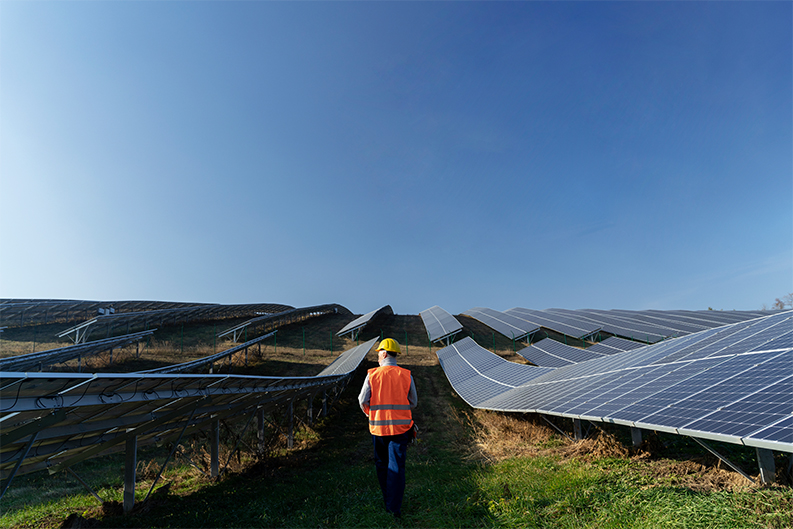In recent years, solar energy has emerged as a cornerstone in the global transition towards sustainable power sources. As solar power plants proliferate, ensuring their efficiency and reliability becomes paramount. One pivotal approach to achieving this is through proactive quality control measures. In this article, we delve into the significance of proactive quality control in solar power plants, with a particular emphasis on Risk Management System (RMS) strategies aligned with ISO 9001 certification
Understanding Proactive Quality Control
Traditionally, quality control in solar power plants has often taken a reactive stance, addressing issues only after they arise. However, in today’s dynamic energy landscape, this approach falls short. Proactive quality control involves implementing strategies to anticipate, identify, and mitigate potential risks before they impact plant performance. This shift not only minimizes downtime and maintenance costs but also maximizes energy output and overall profitability.
The Role of Risk Management System (RMS)
At the heart of proactive quality control in solar power plants lies the Risk Management System (RMS). This comprehensive framework is designed to identify, assess, and manage risks throughout the plant’s lifecycle. It involves systematic processes for risk identification, analysis, mitigation, and ongoing monitoring and review in alignment with ISO 9001 certification standards.
Benefits of Proactive Quality Control
Enhanced Reliability: Proactively identifying and addressing potential issues allows solar power plants to operate with greater reliability, minimizing unexpected downtime and ensuring a consistent supply of clean energy.
Optimized Performance: Proactive quality control measures enable operators to optimize the performance of solar panels and other components, maximizing energy output and efficiency by pre-emptively addressing factors that could degrade performance.
Cost Savings: Reactive maintenance can incur significant costs, both in terms of repair expenses and lost revenue due to downtime. Proactive quality control helps minimize these costs by preventing issues before they escalate, ultimately improving the plant’s financial viability.
Compliance and Safety: Implementing proactive quality control measures ensures that solar power plants meet regulatory requirements and industry standards, enhancing safety for personnel and surrounding communities and safeguarding against potential legal and financial repercussions as outlined in ISO 9001 certification guidelines.
Key Strategies for Proactive Quality Control
Regular Inspections and Maintenance: Conducting routine inspections and preventive maintenance helps identify and address potential issues before they impact plant performance, including cleaning solar panels, checking connections, and monitoring equipment health.
Data Monitoring and Analysis: Leveraging advanced monitoring systems and analytics enables operators to track key performance indicators in real-time, detecting anomalies early for prompt intervention.
Training and Education: Investing in training programs for plant operators and maintenance personnel equips them with the knowledge and skills to implement proactive quality control measures effectively.
Continuous Improvement: Proactive quality control is an ongoing process that requires continuous improvement. Regularly reviewing and updating risk management strategies allows solar power plants to adapt to evolving challenges and technologies.
Conclusion
In an era where renewable energy is indispensable, proactive quality control plays a pivotal role in ensuring the reliability, efficiency, and safety of solar power plants. By embracing Risk Management Systems and implementing proactive strategies, operators can maximize energy output, minimize downtime, and contribute to a more sustainable future in line with ISO 9001 certification standards. As the solar industry continues to evolve, proactive quality control will remain essential for unlocking the full potential of solar energy as a clean and abundant power source.
